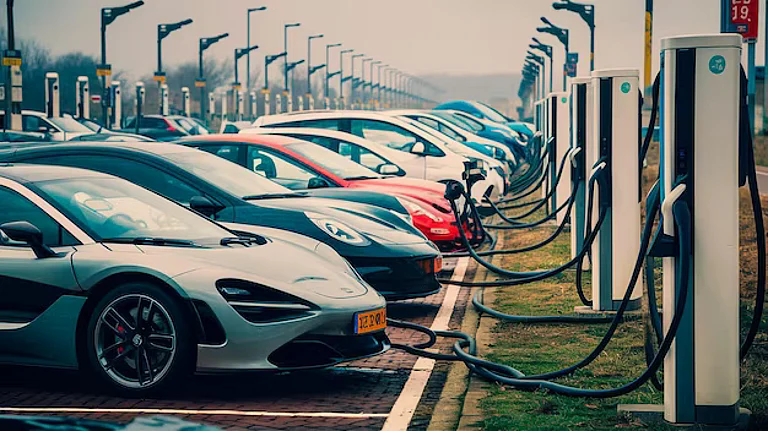The 56th GST Council, presided over by Finance Minister Nirmala Sitharaman, approved a significant tax cut on renewable energy equipment, reducing the rate from 12% to 5% as part of a broad rationalisation of India's Goods and Services Tax (GST).
According to a news release by Ministry of Finance, the decision will drastically reduce project costs and advance India's clean energy goals by addressing solar panels, wind turbines, biogas plants, waste-to-energy systems, and related components.
Finance Minister Sitharaman said that the new tax rates will come into effect from September 22 this year. She further noted that the reform is designed to support India’s transition to sustainable energy and encourage investment in green technologies. Prime Minister Narendra Modi hailed the rate cuts as “wide-ranging reforms” that will benefit households, businesses, and the wider economy.
Encouraging Green Power
The Council extended the 5% slab to hydrogen fuel cell vehicles, including buses and trucks, providing a major push to the government’s National Green Hydrogen Mission. Green hydrogen is seen as the fuel of the future for long-distance transportation, and the reduced tax is anticipated to increase the competitiveness of such technologies, reported Moneycontrol.
The move also aligns with India’s aim of achieving self-reliance in domestic manufacturing of these components. The country now produces 100 GW worth of solar modules domestically, though critical inputs like wafers and ingots are still largely imported from China. By cutting GST on renewable equipment, the government aims to strengthen local supply chains and reduce import dependence, according to Mint.
Experts welcomed the GST cut for renewable energy equipment in particular, underscoring its role in strengthening wind, solar, and other green technologies.
Commenting on the reduction of GST rate on solar products and its impact on the industry, Gautam Mohanka, Director, Gautam Solar, said that “The decision by the GST Council to reduce the GST rate on solar components from 12% to 5% marks a pivotal step in accelerating India's clean-energy transition. This significant reform greatly increases the accessibility of solar installations for households, businesses, and farmers across the country.”
He further emphasised that the need to decarbonise the country’s energy systems is urgent considering the global extreme weather events, rising temperatures, and erratic climate patterns. He believes that reducing this financial barrier would make solar power more affordable and enabling its faster adoption. Thereby, directly reducing carbon emissions and reducing dependence on fossil fuels.
“We believe this tax break will boost energy security and encourage new project pipelines. It will also contribute meaningfully to India's climate action commitments and its global responsibility to combat climate change. I commend the Council's vision and urge swift implementation so that the industry can leverage this momentum for a greener, more climate-resilient future,” he added.
Sharing his views on the recent GST rationalisation, Amit Paithankar, CEO, Waaree Energies, said, “The recent GST rationalisation reflects the government’s commitment to India’s clean energy transition. The reduction of GST on renewable energy devices and equipment to a uniform 5% will lower project costs and accelerate the capacity addition needed to meet India’s clean energy targets. It also sends a strong signal to investors, improving the financial viability and attractiveness of the renewable energy sector."
He added that this move will reduce the cost of solar modules for consumers, support the PM Surya Ghar Yojana, strengthen the domestic manufacturing value chain, create jobs, and promote energy independence. “Waaree is committed to passing these benefits on to customers, making our products more competitive in the market,” he added.
Expressing his views on the GST rate on the revised rates on renewable energy components, Dhaval Popat, Energy Analyst, Choice Institutional Equities, on the impact of GST rationalisation for the Energy sector, said, “Firms involved in these renewable domains stand to benefit meaningfully from the GST cut – through improved cost dynamics, stronger project viability, and enhanced competitiveness. However, we note that Indian PV firms are exposed to US tariffs of 50% on solar imports.”
Broader GST Overhaul
The Council further announced a structural overhaul of GST itself. The earlier 12% and 28% slabs have been eliminated, with most goods now falling into simplified 5% and 18% categories. A 40% slab remains for luxury and sin goods.
In a parallel move, GST on coal was increased to 18% from 5%, but the ₹400/tonne compensation cess was removed. According to the Finance Ministry, this change will not increase costs for buyers, ensuring no major impact on electricity prices, reported Mint. With plans to add 80 GW of coal-based capacity by 2032, coal continues to be India's primary power source.
Industry experts also welcomed the reforms, recognising their potential impact on India’s energy transition.
Ratul Puri, Chairman, Hindustan Power, stated, "While the tax rate on coal has been raised from 5% to 18%, the overall impact will be minor as the existing compensation cess of Rs 400 per tonne has now been subsumed within the GST rate. However, to support the transition from fossil fuels to non-fossil sources, the reduction of GST on renewable sector products from 12% to 5% is truly transformative."
Puri acknowledged that this move will further enhance renewable energy capacity and accelerate the adoption of green technologies such as biogas, solar cells, green hydrogen and battery energy storage systems.
The reforms, according to experts, strike a balance between reducing the cost of clean energy and streamlining taxes across industries, putting India in a position to meet both its climate goals and the country's expanding power demand.


































